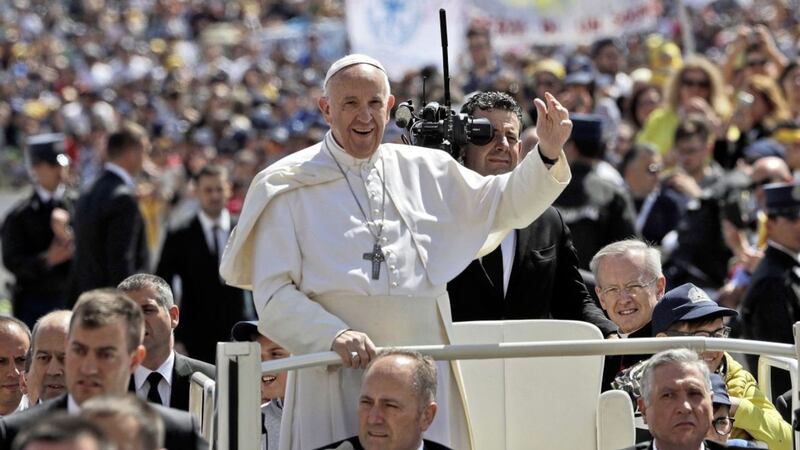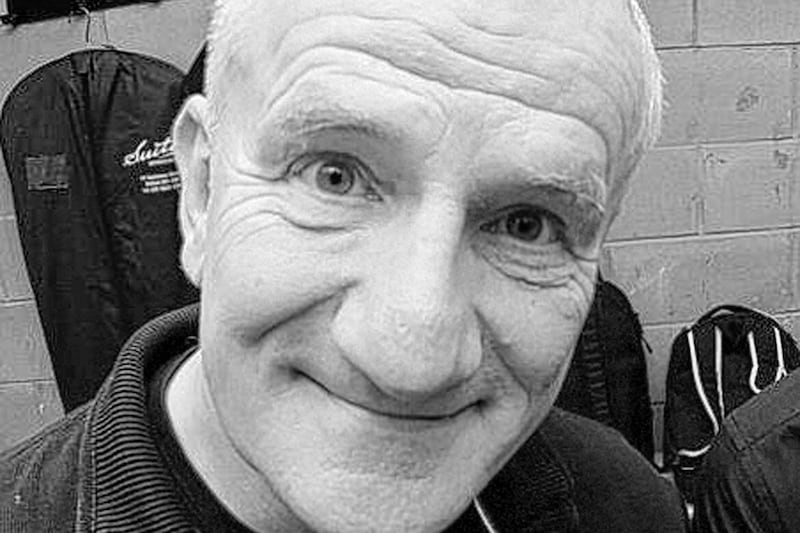THIS comparison is in no way sacrilegious, for if the expected half a million people turn up to see Francis in Phoenix Park, how many will be there to see a superstar, and how many to see a Pope?
The Ireland Pope Francis visits is an Ireland changed utterly since the last Papal visit. It's hard to imagine, but in 1971, Ireland was recognised as the most Catholic country in the world, with 95 per cent of the population describing themselves as Catholic.
Things had already begun to slip by the time of John Paul’s visit and this was one of the reasons for him coming.
The 39 years that have passed between Papal Phoenix Park Masses have seen the Church wracked with child abuse scandals and the secularisation of society which has decimated the numbers practising the faith.
Attendance at Mass has dropped off a cliff, with a survey indicating only 36 per cent of the population attended in 2016 compared to 78 per cent in 1992.
In the intermittent four decades, the grip of the Church on Irish society has been utterly broken; homosexuality, contraception and divorce have all been made legal and Ireland became the first country to make same sex marriage legal.
The latest – once unthinkable – move was a referendum which saw an overwhelming majority voting to allow abortion in limited circumstances.
But without doubt, the greatest self-inflicted injury to the Church came via the litany of clerical abuse scandals. After the publication of the Cloyne report, the then Taoiseach Enda Kenny, barely containing his anger, made a speech to the Dail where he laid bare the failings he saw in how the Church handled the issue.
He said: "The rape and the torture of children was down-played or 'managed', to uphold instead the primacy of the institution, its power, its standing and its reputation."
Yet, despite decades of bad news, the Church is far from dead in Ireland, with 78 per cent of the population still identifying themselves as Catholic in the 2016 census.
But – and it’s a big but – how many of those who identify themselves as Catholic would be recognised by the Church as such?
A new term has entered the lexicon, the 'cultural Catholic'. These are people who, due to tradition or sentiment, still feel connected to the Church while not feeling obligated to follow its teachings.
This a-la-carte approach has driven a wedge between the traditionalist and more liberal branches.
With his views on homosexuality, divorce and other religions, Pope Francis is identified with the liberal faction, and this has led traditionalists to warn of a possible schism within the Church.
The election of Francis came after the seismic decision of Pope Benedict to retire, the first time a Pope did so since Gregory XII in 1415. Pope Francis made it very clear from the beginning that the old ways of doing things were to change.
After the conclave which elected him, he refused the Papal limousine and travelled back to the Vatican in the same bus as his fellow Cardinals.
He insisted then on returning in person to the hotel where he’d been staying, to collect his bags and pay his bill. He still refuses the armoured limousine and on a visit to the home of gas guzzlers, the USA, travelled instead in a Fiat 500L.
This is combined with his refusal to wear the famous red shoes and a decision to live outside the Vatican, away from the machinations of its civil service, the Curia.
Cynics will view this as a savvy Pope practising good PR, but a look at Francis's past will show it as the continuation of his earlier way of life. As a Cardinal in Buenos Aires, Francis lived in a small, self-contained flat, where he cooked his own meals and travelled to work by public transport – this is a man whose love of the poor and disadvantaged isn’t an affectation.
If it takes an oil tanker 20 minutes to stop, it’s not surprising it's taking the Catholic Church, 2,000 years in existence, decades to change.
What is certain is that, with Francis at the helm, there is at least a chance that decades of decline can be halted with millions of Catholics once again describing themselves as 'practising' rather than cultural.








